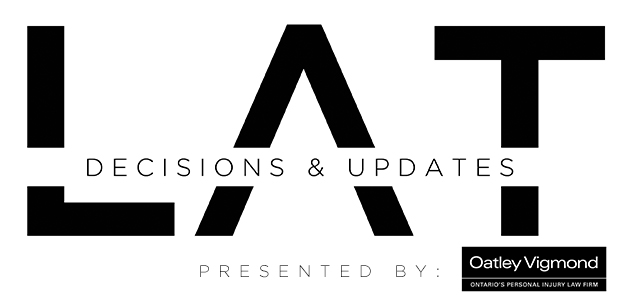V501 – Divisional Court Overturns LAT Decision Which Did Not Reflect the Independent Decision of the Adjudicator

In a startling turn of events, the Divisional Court has set aside a LAT decision on the basis that the minimum standards to ensure the existence and appearance of adjudicative independence were not met. We can imagine this decision could have ripple effects on the LAT’s past and ongoing decisions.
The case involved a dispute as to whether Ms. Mary Shuttleworth suffered a catastrophic impairment. The case was heard at the LAT and the adjudicator ultimately released a decision confirming that the catastrophic threshold had not been met.
Several months after the decision was released, Ms. Shuttleworth’s counsel received an anonymous note indicating that the executive chair of the LAT had interfered in the decision – the tip advised that the adjudicator had originally decided there was a catastrophic impairment but that the executive chair “changed the decision to make the applicant not catastrophically impaired”. In investigating the tip, Ms. Shuttleworth’s counsel discovered that, “pursuant to an unwritten review process imposed by the executive chair, the legal department sent the adjudicator’s draft decision to the executive chair for her review and comments. The executive chair provided comments to the adjudicator. The adjudicator thanked the executive chair for her helpful review of the decision and advised that she was working on revising it. Further revisions were made and the decision was released.”
In concluding the decision to overturn the LAT’s original decision, the Divisional Court Justices confirmed as follows:
[64] The review was conducted by a person at a superior level of authority without a request from the adjudicator to do so. There is no evidence as to the nature of the changes made by the executive chair although counsel for the Tribunal swore that decision-makers are free to make whatever decision they wish.
[65] The executive chair’s review is in breach of the first requirement set out in Consolidated Bathurst and applied in Ellis-Don that consultation cannot be imposed by a superior level of authority within the administrative hierarchy, but can only be requested by the adjudicator herself. This breach creates a reasonable apprehension of lack of independence.
[66] Deliberative privilege is meant to ensure that any peer review or consultative process has robust protections to safeguard adjudicative independence. Absent bad faith, the formality and express limits set out in a formal peer review process will usually be the last and best protection that the parties and the public have against improper interference and to safeguard the appearance of propriety of the decision-making process.
[67] There is no formal and voluntary process, despite the statutory accountability process that calls for one. As the decision in this case was subjected to a peer review process that did not contain the required safeguards of adjudicative independence, decision of the adjudicator is set aside and referred back to the LAT for a new hearing.
Official Decisions:
Mary Shuttleworth v. Licence Appeal Tribunal, 2018 ONSC 3790
